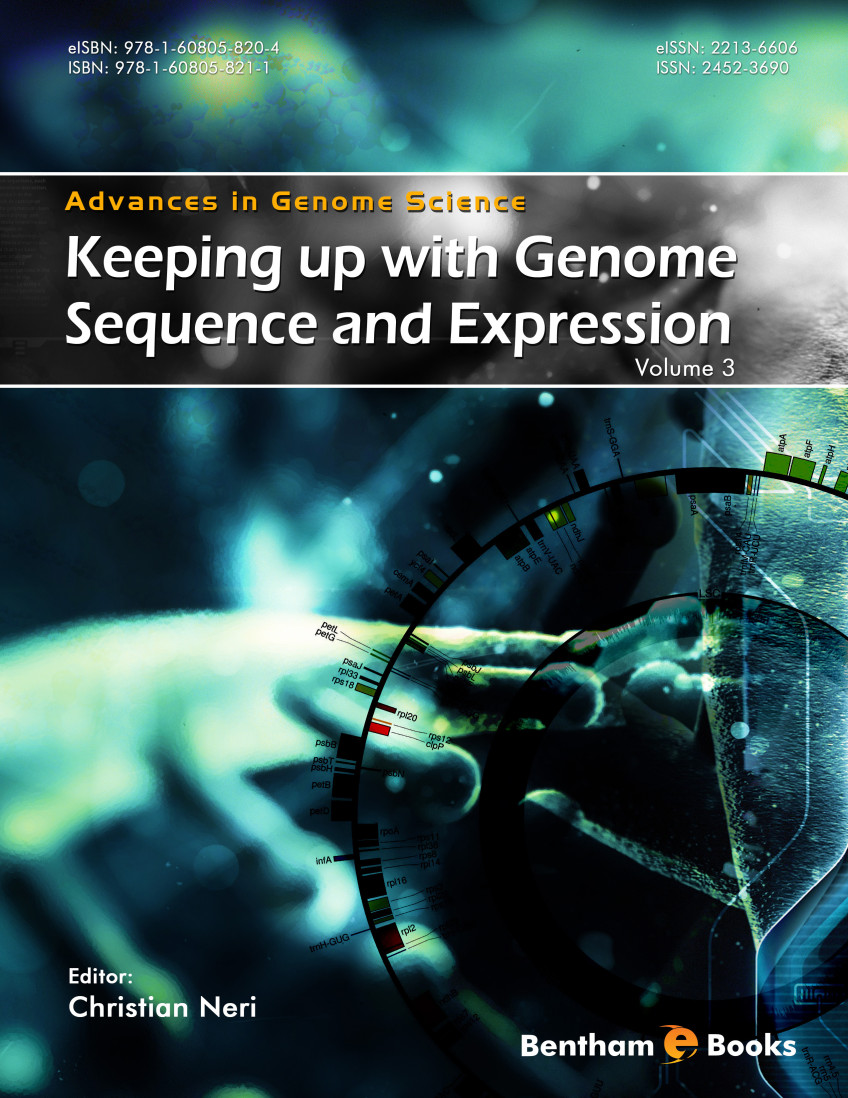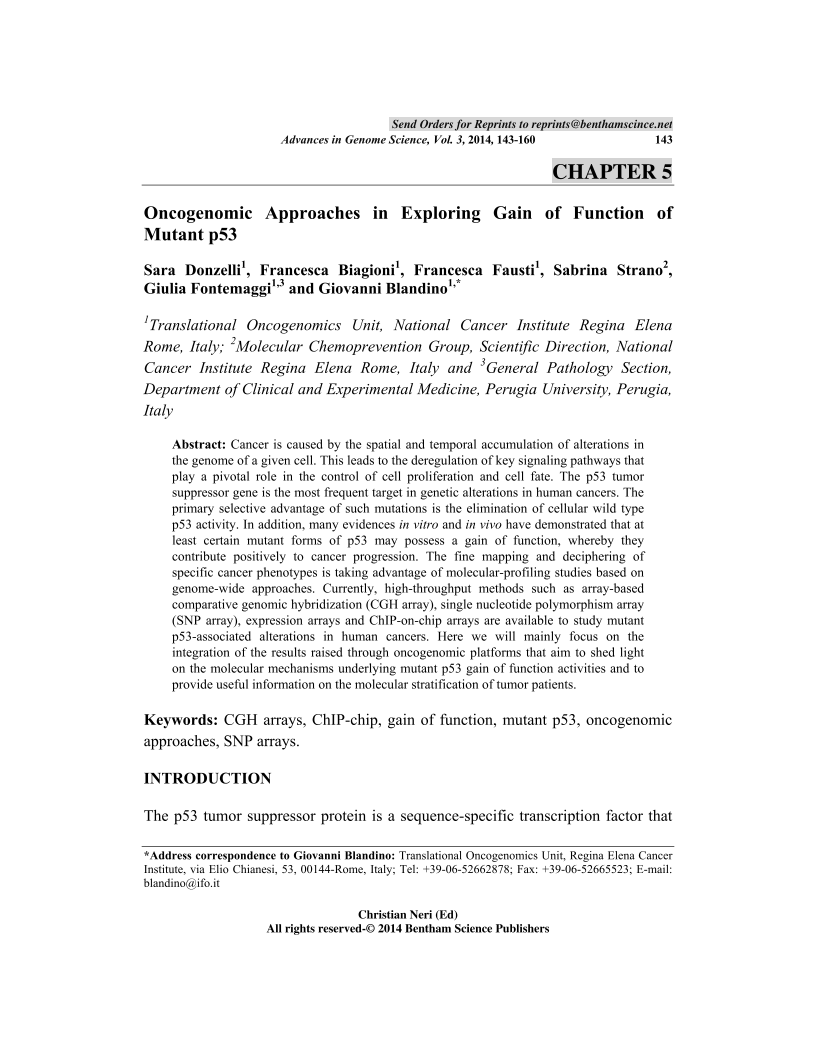Oncogenomic Approaches in Exploring Gain of Function of Mutant p53

- Authors: Sara Donzelli, Francesca Biagioni, Francesca Fausti, Sabrina Strano, Giulia Fontemaggi, Giovanni Blandino6
-
View Affiliations Hide Affiliations6 Translational Oncogenomics Unit, Regina Elena Cancer Institute, via Elio Chianesi, 53, 00144 Rome, Italy
- Source: Keeping up with Genome Sequence and Expression , pp 143-160
- Publication Date: August 2014
- Language: English
Oncogenomic Approaches in Exploring Gain of Function of Mutant p53, Page 1 of 1
< Previous page | Next page > /docserver/preview/fulltext/9781608058204/chapter-5-1.gif
Cancer is caused by the spatial and temporal accumulation of alterations in the genome of a given cell. This leads to the deregulation of key signaling pathways that play a pivotal role in the control of cell proliferation and cell fate. The p53 tumor suppressor gene is the most frequent target in genetic alterations in human cancers. The primary selective advantage of such mutations is the elimination of cellular wild type p53 activity. In addition, many evidences in vitro and in vivo have demonstrated that at least certain mutant forms of p53 may possess a gain of function, whereby they contribute positively to cancer progression. The fine mapping and deciphering of specific cancer phenotypes is taking advantage of molecular-profiling studies based on genome-wide approaches. Currently, high-throughput methods such as array-based comparative genomic hybridization (CGH array), single nucleotide polymorphism array (SNP array), expression arrays and ChIP-on-chip arrays are available to study mutant p53-associated alterations in human cancers. Here we will mainly focus on the integration of the results raised through oncogenomic platforms that aim to shed light on the molecular mechanisms underlying mutant p53 gain of function activities and to provide useful information on the molecular stratification of tumor patients.
-
From This Site
/content/books/9781608058204.chapter-5dcterms_subject,pub_keyword-contentType:Journal -contentType:Figure -contentType:Table -contentType:SupplementaryData105

